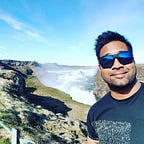Two roads diverged in a wood…
The choices we make today about our environment will define the future we want.
The stories we share as people, define how we see the world. We learn that the hero saves the day and good beats evil (usually). We frame romantic entanglements through Disney movie plots. We roil with teenage angst in parallel with our favourite television dramas. We gain empathy and camaraderie with people in places and time beyond our comprehension, through our favourite books and novels.
As we get older, these motifs and discourses shape the careers we choose and the ideologies to which we ascribe. Oftentimes without us even knowing. These discourses direct how we interpret the world and therefore how we behave in it; including our behaviour towards the environment. Our environmental discourses are shaped and moulded by our history, our culture, our economic models and our ambitions as a people. Little by little these blocks build up a foundation that determines how centrally we hold the environment in our decision making.
I’ve been thinking about this for quite a few years — how I relate to the world around me. When I was younger I wanted nothing more than to be an astronaut. I was (still am) obsessed with science fiction and the vision of mankind living to its maximum well-being out there in the stars, in harmony with the planet. This desire, after I realised how much mathematics was involved, morphed into my wanting to be an environmentalist in high school and University. However, life and young adulthood intervened and I became just another guy in my early 20s having a good time, with a liking for new clothes and foreign vacations. My stories were not about the boy lying on a beach at nighttime looking at the stars.
As I’ve gotten older, however, I’ve begun to once again feel like part of that greater thing, the world around me — in conjunction with my progression in my career in the field of environmental sustainability. I must admit, sometimes I’ve felt like a fraud occupying a space that maybe I didn’t deserve but now I realise that these ‘AHA’ moments come when they may. I’ve consciously felt the merging and infusing of discourses from amazing people I’ve had the honour to know and the expanding of my knowledge base about the issues of the environment, development, the economy and who we are as people.
Especially now, as we’re all locked up inside contemplating what the world will look like in a few months, we must take a step back. We should all to understand and identify the discourses that will guide how we act in our personal lives and especially in our political choices, coming out of the COVID-19 pandemic. In my case, of course, it’s the discourses that will shape how much power we give to the environment in the national conversations about post-COVID recovery.
In John S. Dryzek’s book, The Politics of the Earth: Environmental Discourses, he positions our environmental discourses in relation to their divergence from the predominant industrial system, through the dimensions of:
Systems Change: Reformation vs Radical
and
Approaches to Change: Prosaic vs Imaginative
From these dimensions, he classified environmental discourses as Environmental Problem Solving, Limits and Survival, Sustainability and Green Radicalism.
To my understanding, all save Green Radicalism, see change as occurring within and through the existing structures of the market, current societal norms and the industrial political economy, albeit with different hands taking the wheel. Sustainability is where many of us ‘sustainability practitioners’ place ourselves at one point or another. It’s where we posit that environmental conservation and economic growth and existing values can happen in parallel and do not necessarily have to conflict — however we are seeing daily that this may not be true. Green Radicalism, on the other hand, calls for a complete shift in how we think at foundational levels about the world and our place in it and the systems that support our continued presence here.
I do not believe that we can put our faith in this system, that views humanity as transactional units of capital, to see us through to a future where we can reach our maximum well-being, like the sci-fi books I used to read as a kid. In a post-COVID world, we do not have the time to not be radical. The idea of being radical is a very uncomfortable one for many people, me included. I have always admired people who have been able to step to the front and not be afraid — but I’ve always felt too caught up in my insecurities to do the same.
We need to examine the discourses that make us who we are and interrogate those which give us a reason to not be radical. For people like me, it can be a long process of introspection. However, like all of us, I can’t afford to feel like that anymore. From small personal actions to protest, we all have to embrace a new sense of radicalism to shape our future into one that works for all of us.
